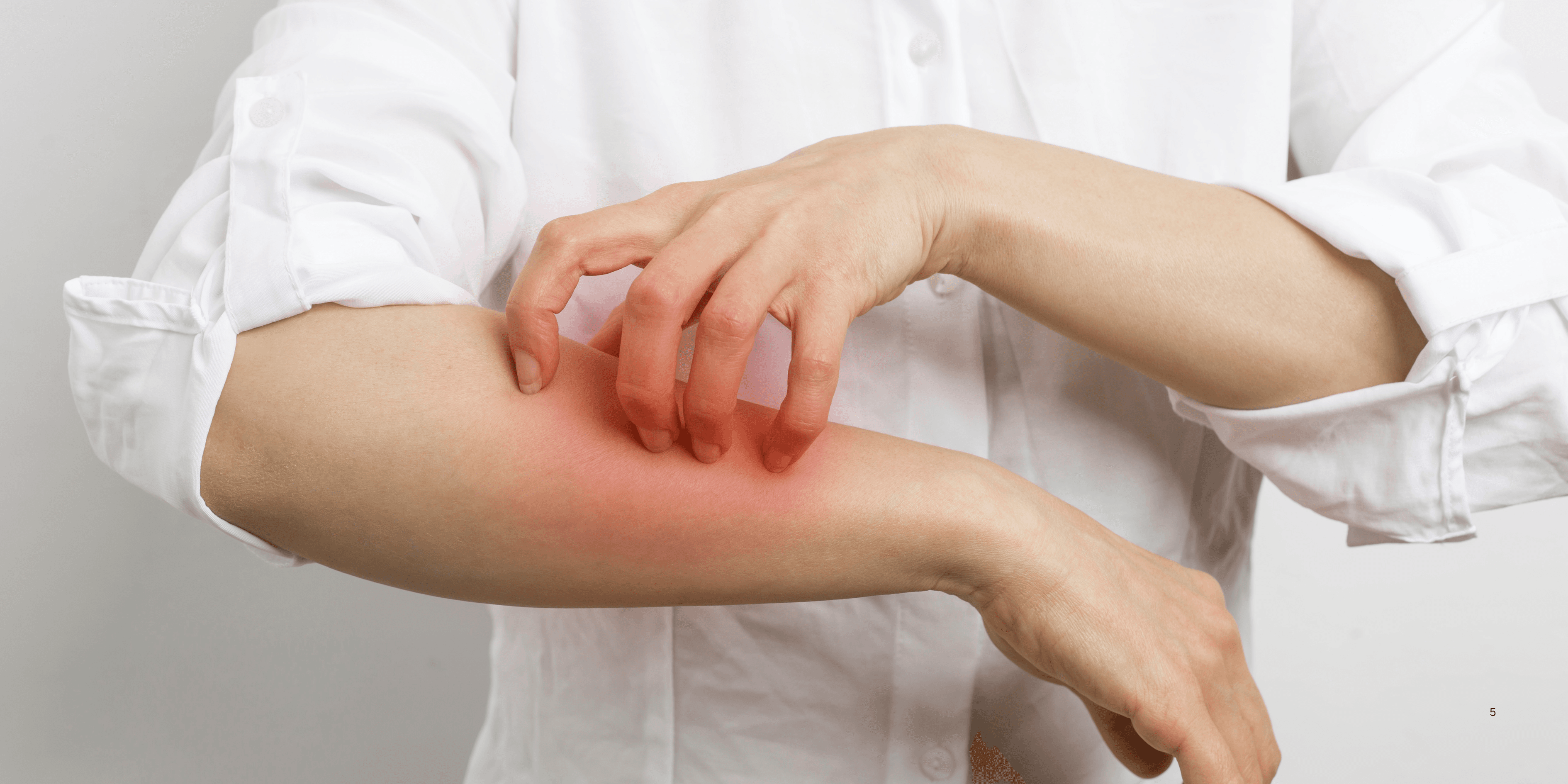
“
Managing eczema and skin allergies in children involves a careful balance of daily skincare, avoiding irritants, and responding to flare-ups effectively. Children’s sensitive skin reacts strongly to allergens or dry conditions, making timely action essential. Parents must understand how to prevent outbreaks, soothe inflammation, and build healthy routines.1
1
”
A dermatologist’s guidance helps personalize a child’s skincare plan by identifying the root cause, such as food allergens or environmental triggers, reducing flare-ups through and tailored daily care. 1
Eczema in children is commonly linked to genetics; if one parent has eczema, asthma, or hay fever, the child has a higher chance of developing sensitive or allergy-prone skin early in life. 2

Moisturizing twice daily with fragrance-free creams locks in hydration, reducing dry skin patches and itchiness. Keeping the skin barrier strong is a key preventive step in eczema care for children.
Avoiding long hot baths helps protect children’s skin. Use lukewarm water and limit bath time to 10 minutes. Follow immediately with moisturizer to prevent moisture loss and irritation. 3
Identifying specific triggers such as dust mites, pet dander, or certain detergents is crucial. Allergy testing and journaling symptoms can help parents spot patterns and avoid repeated flare-ups. 4
Colder weather can dry out skin and worsen eczema. Humidifiers in children’s rooms help restore moisture in dry indoor air, relieving tightness, scaling, and overnight itching during winter months. 5
Food allergies like eggs, dairy, soy, or nuts can sometimes aggravate eczema. Elimination diets under medical supervision help identify problem foods and improve a child’s skin condition over time. 6
Children with skin allergies may also have asthma or hay fever due to an overactive immune response. Managing one allergic condition often benefits the others, offering better overall relief. 7
Applying topical corticosteroids during flare-ups can reduce swelling and redness. These should be used as prescribed by a healthcare provider to avoid thinning of the skin with prolonged use. 8

Wet wrap therapy is effective for moderate eczema. Wrapping medicated cream-covered skin with damp bandages helps reduce itching, boosts cream absorption, and speeds up healing in inflamed areas.
Children with eczema need emotional support. The condition can affect sleep, confidence, and social interaction. Reassuring them and educating others reduces stigma and boosts self-esteem. 9
Skincare routines must be consistent. Even when flare-ups subside, daily moisturizing and trigger avoidance prevent future episodes and help the skin stay calm, smooth, and itch-free long-term. 10
Pollen can trigger eczema in sensitive children, especially during spring. Washing hands, clothes, and hair after outdoor play helps reduce contact with airborne allergens and relieves skin discomfort. 11
Probiotics may help children with eczema by balancing gut bacteria. Some studies suggest supplements or probiotic-rich foods can improve immune response and reduce eczema severity in certain children. 12
Sunscreens for eczema-prone children should be mineral-based and fragrance-free. They protect sensitive skin from UV damage without causing irritation or clogged pores when spending time outdoors. 13

Aloe vera gel can soothe mild eczema. Its anti-inflammatory and cooling properties relieve itchiness and speed up minor flare-up recovery, but it should be patch-tested first to avoid allergic reactions.
It’s important to teach children not to scratch. Reward systems, breathable gloves at night, or storytelling can encourage mindful behavior and prevent further skin injury during healing periods. 14
Psychological stress can worsen eczema flare-ups in children. Relaxation techniques, play therapy, and maintaining calm home routines help reduce emotional triggers and stabilize skin responses. 15
Parents should schedule regular follow-ups with pediatric dermatologists. Adjusting treatment plans based on seasonal changes and growth stages ensures effective control and evolving care strategies. 16
Pediatric allergists play a vital role in long-term eczema management. Their expertise in immune responses and allergens helps develop child-specific strategies that reduce symptoms and improve quality of life.17


